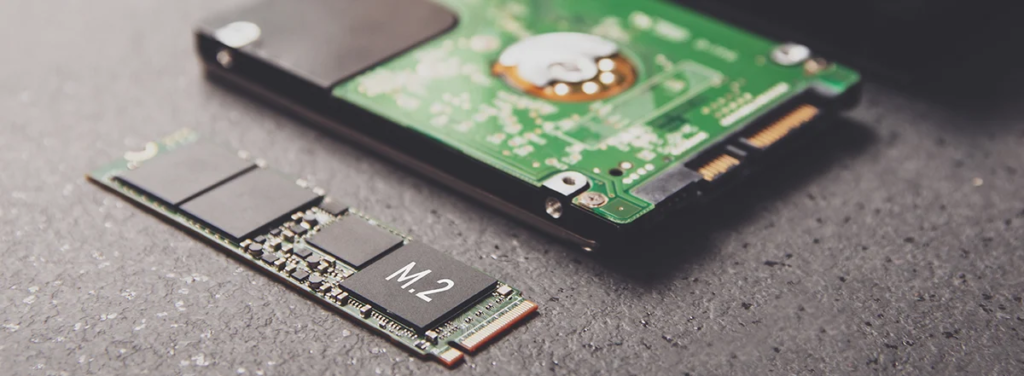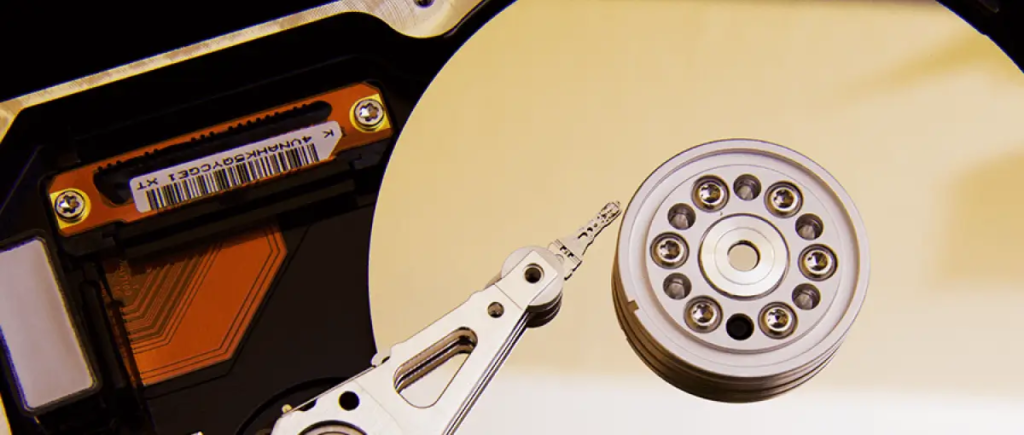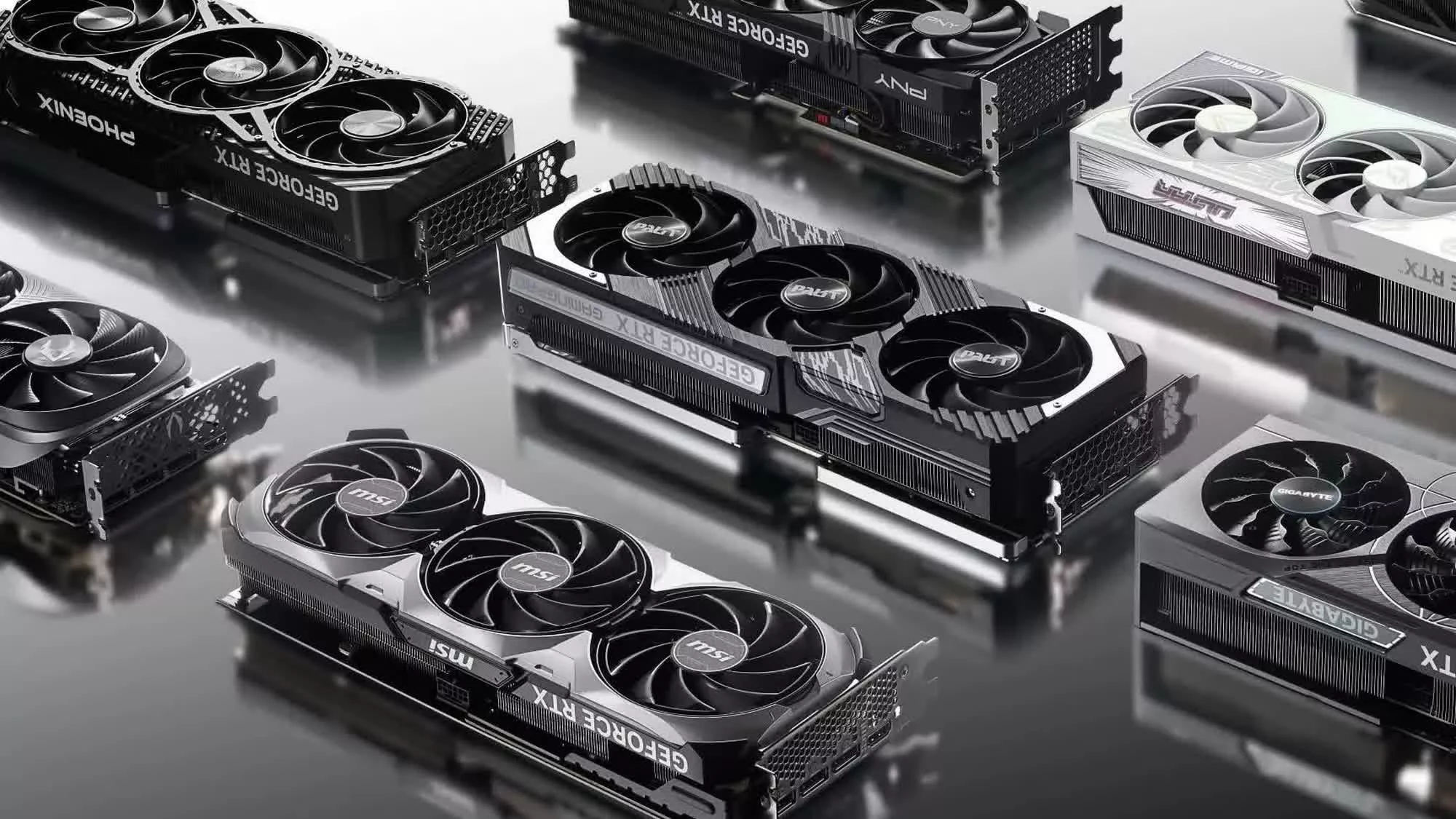Table of Contents
Introduction
Now you’ve got yourself settled down on what components you want to be installing in your PC, or maybe you are just looking to upgrade your PC for better performance but don’t really want to drain your pockets by going out and buying all new components. When you are building your PC people often overlook the storage part thinking it doesn’t matter much, but It might not seem like a big deal at first, but your choice between Solid-State Drives (SSD) and Hard Disk Drives (HDD) can have a huge impact on gaming performance, load times, and overall system responsiveness. We know that we all have been frustrated by long loading screens or slow game installations like few minutes feels like centuries since we are used to the fast read and write speeds on our smartphones and other platforms, to mitigate this very problem we bring you the guide as to what you will need for your gaming and make sure that you understand how these storage options work can help you make the best choice for your setup.
Without any further ado, lets dive right into it.
What’s the Difference Between SSD and HDD?

Let’s look into the major differences of SSD and HDD in order to make the right decisions and to understand why one is more preferable than the other when it comes to gaming.
Think of storage of these things like a bookshelf vs a filling cabinet. Let’s assume we have a huge book collection with various genres and emotions. If you were to find your favourite book in the collection it will take you time to search through the piles of book, right? But if you were to have the whole books organized in terms of genres, series, writers and all-time favourites, now you significantly lower down the time for finding the book instead of searching in a heap of books. Similarly, these storage components are designed and function the same as organizers and separated neatly.
An SSD works like the book shelfs where the data is stored in an organized manner with proper labelling and proper order, which reduces time for your computer to load up the files. On the other hand, if you look at an HDD you can call it a filing cabinet where all the files are stored in a cabinet, organized but you’d still have to open the drawers, sift through all the files in the cabinet to finally get the book you want. Since HDD relies on mechanical parts to read and write data, it takes significantly longer to access files compared to an SSD. The more books (or data) you have, the harder and slower it becomes to find what you need.
HDD (Hard Disk Drive) – Like a filing cabinet, it stores a lot of data but takes longer to find and retrieve files.
SSD (Solid-State Drive) – Like a bookshelf, everything is instantly accessible, making it much faster than an HDD.
In short HDDs use spinning disks to read and write data, while SSDs use flash memory (like a USB drive), making them significantly faster.
Looking out for building your pc at affordable , get your dream pc built here
How does an SSD or HDD Affect your Gaming?

Like explained in the previous segment, the way how these two storage devices source the data is quite different in terms of speed. And speed is one of the most important factors when it comes to the gaming performance of your PC. The difference between an HDD and an SSD is night and day, especially for modern titles that require fast data streaming. Since the SSD use flash memory tech to store and read data, the load times are reduced and delivers a smoother experience in vast open world games.

HDD: Hard drives that were traditionally used before like HDD, rely on spinning disks and a mechanical read/write arm to access the data. This results in a very long load time of game files, texture pop-ins and overall gives out a sluggish performance. These things are really noticeable in Open-world games that rely on frequent asset streaming (like Cyberpunk 2077 or Red Dead Redemption 2) for their maps and visuals changing in every other frame, these games can suffer from stuttering and slow texture rendering due to the limited data read and write speed of an HDD which is typically around 80-160 MB/s, and trust me for modern games these are slow like really slow.

SSD: Now ever since SSD entered the market most of the PC builds and gamers have started shifting to solid-state drives which is SSD to store data in NAND flash memory which allows the PC and games for instantaneous data retrieval with very minimal delay. These storage devices comes with read/write speeds of 500 MB/s (SATA SSDs) to over 7000 MB/s (PCIe Gen 4 NVMe SSDs) and with the introduction of PCIe Gen 5 the whole different level as they can reach sequential read and write speeds of up to 14,000 MB/s or even higher. Though minimal impact, the SSDs also reduce in-game stutter and eliminate texture pop-ins, ensuring a seamless gaming experience, especially in open-world environments.
For example: A game like GTA V may take like a 1+ minute time to load on an HDD with the same PC spec, but just 10-15 seconds on an SSD. Similarly, Call of Duty: Warzone, which has massive game files, can take over 2 minutes on an HDD but less than 30 seconds on an NVMe SSD.
Side note is that, you need to understand f you are playing FPS shooter games like Valorant or Apex legend the storage type wont really affect your PFS or game response, but it will help you load the maps faster giving you more time to select your strategy and weapons.
To know Top 5 ssd for your pc check out here
Durability & Lifespan

HDD: Hard disk drives rely on spinning disks and mechanical parts to read and write the data which makes them vulnerable to wear and tear in the long run, especially if they are moved or dropped while still in use. In terms of the long run the HDDs usually start failing due to the mechanical wear and tear.
SSD: On the other hand, Solid State Drives have no moving parts which, means that they are far more resistant to all the general wear and tear. This makes them a better long-term investment for storing your data as well as your future security.
Lifespan Consideration: Although SSDs do not have any physical moving parts, they still have a number for read and write cycle which is not less ofcourse, the modern SSDs now have been engineered and designed to last for many years in which the most obvious chances are, the user will upgrade or will never reach that life cycle.
Capacity & Price
Now after reading all these, surely you are getting enticed to buy the high storage SSD but hold your horses as storage capacity and cost are two major factors to consider when choosing between an HDD and an SSD. If, in-short we were to talk about the types of storage that one might consider, gamers who need storage for their game libraries then they might lean more towards the HDD or else if the speed was the major concern then SSD will be preferred.

HDDs: Hard disk drives offer lower price per gigabyte which makes them an ideal choice for users who need massive storage but on a budget. So, for example a 2TB HDD typically costs much lesser as compared to a 2TB SSD. HDDs are a good choice for storing large game libraries, media files, and backups. However, HDDs become slower as they fill up which later on impacts the performance over time.

SSDs: Solid-state drives are significantly more expensive per GB but in their defence, they provide much faster access times. A 1TB NVMe SSD will cost more than a 1TB HDD but it will load the system or the games almost instantly. The price of SSDs has been dropping over the years, making them more affordable for gamers. However, high-capacity SSDs (like 4TB or more) can still be very costly.
A solution that we usually give to gamers is that they use a small SSD (500GB-1TB) which will run their operating system and favourite games which improves the loading times, while they can keep a larger HDD (2TB or more) for all the other additional storage that they need for their videos, music, other files, etc. This approach balances speed and storage capacity without breaking the bank and many of us PC builders often do this.
The bottom line is that if budget is your priority the HDDs are the better option for bulk storage. But if you want the best gaming performance then the SSDs are the way to go.
Types of SSDs that Exist:

SATA SSDs:
These drives are what you can call the entry points of Solid state drive world as while it is not the fastest but they offer a significant upgrade from the traditional hard disk drives. Meaning that these are better at providing quicker boot times and application loading. Sure, they’re not as fast as the new SSDs in the market, because they still utilise the older SATA tech, but trust me, they’re still a huge leap from those old spinning hard drives.
NVMe SSDs:
Coming to the NVMe SSDs which are an upgrade to the SATA SSDs. These drives utilize the PCIe interface which helps it in unlocking much faster data transfer speeds, resulting in a noticeably reduced loading time in games and applications. Due to which many gamers and PC builders who prioritize speed choose to purchase this.
PCIe Gen 4 & Gen 5 SSDs:
Similar to the NVMes which utilise the PCIe interface, these PCIe Gen 4 and 5 represent the pinnacle of consumer SSD technology. The PCIe Gen 5 is the newest and fastest as they offer blazing-fast speeds which makes them an ideal for high-end gaming setups and demanding professional workloads where every millisecond counts. If you’re looking for the absolute best in storage performance, particularly for tasks like 4K video editing or complex 3D rendering, these drives are the way to go.
Final Verdict: SSD Wins for Gaming!
After reading the blog, we are pretty sure you know what to get for yourself according to your needs and with the hybrid option you can live and experience the best of both the worlds. Look, if you’re tired of staring at the loading screens and want your games to run smoother then, an SSD is your go to choice blindly, it’ll make a huge difference. But, if you’re the type to drown into games, movies and random files, and you’re on a tight budget, then you should consider not to write off these old-school hard drives just yet as they still are the best at storing all that stuff you don’t need to access every five seconds, like those older games you revisit once in a blue moon or that massive collection of videos.


